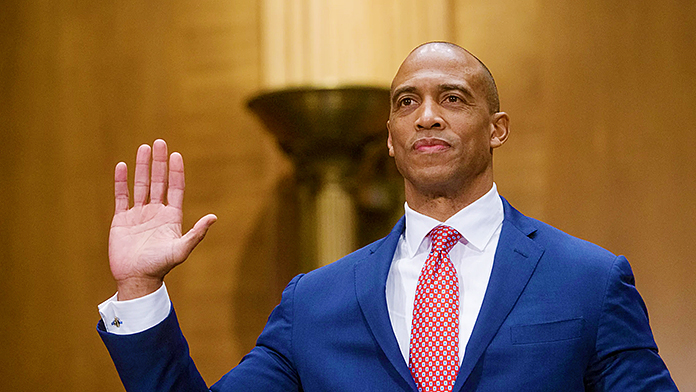The superstars in this field are often in the mold of Deepak Chopra.
His message is a bouillabaisse of Eastern philosophy, Western theology, Celtic traditions, modern medicine and even rap music.
“Everything he ever heard is grist for his mill,” says one observer.
Stephen Covey has been called “the hottest self-improvement consultant to hit U.S. business since Dale Carnegie.” His message is “to reach your full potential, you have to build character.” That’s fine, but I’m not sure that’s enough in today’s hyper-competitive market. Nice guys don’t always finish first.
And then there’s Tony Robbins–a jut-jawed, Armani-suited warrior, 6- foot-7, who strides on-stage with an exploding smoke machine and strobe lights. His pitch is that you can achieve anything you want just as long as you adopt the right attitude. Adrian Wooldridge, co- author of The Witch Doctors, a valuable book that dissects management counselors and gurus, says that Robbins “is selling faint hope to suckers.”
Now, the latest rage in firing up the staff is to import speakers who have beaten blindness, paralysis and other life-threatening obstacles. These “overcome all odds” conferences are long on emotion but very short on takeaway content.
I think it’s time to offer some simple advice to deal with self- improvement issues.
Understand what’s going on. It starts with insecure or unhappy people. Offer them an answer to their problem. Cloak the advice in language that seems intelligent but is mostly gibberish. Acknowledge that the world is trouble but demand very few changes in the way they actually live and work.
“The spiritual peace and enlightenment offered by pop gurus doesn’t require a lifetime of discipline,” says Wendy Kaminer, a commentator on National Public Radio. “It requires that you suspend your critical judgment, attend their lectures and workshops and buy their books or tapes.”
Forbes magazine calls them the “Happiness Hucksters.” I call it a waste of time. Better to get our people excited with something exciting to sell.
Leave personal growth to the person. If your people want to walk on hot coals and bang drums, let them do it on their own time. And with their own dollars. It’s probably a harmless addiction, no more dangerous than caffeine. In the meantime, put the company’s training dollars into efforts that produce better workers, not better souls.
Start by improving the basics. Take an honest look at your workforce.
Chances are, you’ve got people who don’t read well, don’t speak well, can’t compose a coherent memo, can’t read a balance sheet or are either nervous about computers or use them too much. That’s where to start the training.
“People have to be trained for exactly what they really do,” says retired Navy commander Richard Marcinko, who now heads a private security firm. For example, the training of the FedEx workforce focuses on the single, primary vision that created the company in the first place: overnight delivery. FedEx has trained its workers to ship and track packages so efficiently that the U.S. Army, in designing the supply system for the Gulf War, copied the training techniques of FedEx.
After the basics, work on skill building. That’s the approach serious players take.
In one year, Motorola spent $150 million on corporate education, offering at least 40 hours of training to each of it 132,000 workers.
General Electric spends more than $500 million annually on training and runs a world-class Leadership Development Center in Crotonville, N.Y. Companies of any size can learn from the GE model. GE started by reviewing existing theories on training and other companies’ best practices. The result was a nucleus of a course that 1,100 top managers took over seven days. That, in turn, became a springboard for managers to take information into the field to train tens of thousands of other managers and workers.
“You never send a changed person back to an unchanged environment,” says the director of GE’s training programs. “That’s Organizational Development 101.”
On what skills to focus. Peter Drucker, many years ago, pointed out that since the purpose of business was to generate new customers, marketing and innovation are the most important business functions.
Everything else is expense.
He was absolutely correct, so you should make those two areas of business high on your list of skills training.
Remember, it’s called training, not recreation. A seminar shouldn’t be as dull as C-Span. But watch out for any program where business people dress up as druids and witches and go off on mythical quests or are entranced by someone’s rise above adversity. Let’s give the last word to Tony Robbins. At a certain point in his seminars, Mr.
Robbins is reported to stand up and shout, “We’re going to feel good today for no reason at all.”
I rest my case.
Author: Jack Trout
















